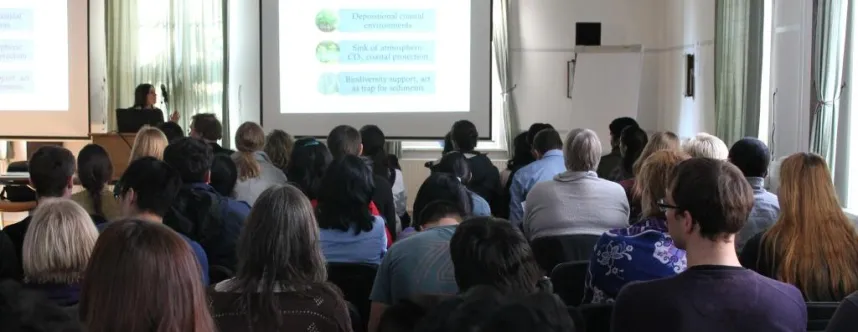MoLife Research Seminar: Dr. Nikolaus Sonnenschein
Talk by:
Dr. Nikolaus Sonnenschein, Technical University of Denmark, Hørsholm, Denmark
Title of the talk:
Computer-aided Metabolic Engineering and Optimization of Cell Factories
Abstract:
Modern genome sequencing, synthesis, and editing technologies are revolutionizing biotechnological production. Modifications that used to require years, strong selection pressure, and sequential procedures, can now be conducted within a few days, marker-free, and multiplexed using CRISPR/Cas9. With the ability to colocalize DNA, RNA, and proteins within cells, there seems to be no limit to what can be done, leaving one with the question: with so many potential modifications in a host organism’s genome, how is one going to pick the right targets? Without the ability to rationally design cell factories the full potential of CRISPR/Cas9 cannot be reached. In order to rationally design an organism, computational models and tools are needed to predict strain designs that are likely to boost the production of desired chemicals, fuels, and materials.
In our group we are developing a model-guided design platform for data-driven cell factory engineering that will dramatically expand the production potential of organisms and products by putting rational decision making in the hands of experimentalists. For that purpose we use and advance metabolic modeling approaches to compute strain designs like the following: “Delete native genes A, B, C, and D. Add foreign genes X, Y, Z. Increase flux through reaction F by twofold while reducing flux through reaction G by threefold. Remove product inhibition in pathway Q. A titer of 50 g/L, a productivity of 2 g/L/h, and a yield of 0.8 g/g can be anticipated.”
In the long term, we will also develop bioinformatics pipelines that translate designs into lab protocols to be carried out by experimentalists or robots in order to shorten the amount of time spent on experimental design. Also with qualifications demanded of cell factory engineers rapidly shifting away from the ability to construct strains towards the analysis of data and design of novel strains, we also work on user-friendly software and teaching materials to train the next generation of MSc/PhD students and Postdocs in computer-aided cell factory engineering.
Further information / host of the guestspeaker: Prof. Dr. Marc-Thorsten Hütt
